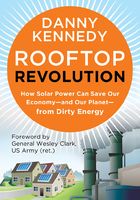
The Madness Goes Global
All the world’s a stage, and this political farce around energy has been playing out for decades. I’ve personally had many supporting roles in this theater. In 1992, for example, I was at the United Nations (UN) meeting in New York where, after much deliberation and many months of late-night sessions, world leaders drafted the United Nations Framework Convention on Climate Change, a global effort to slow global warming. But young attendees, including yours truly (I was there as a journalist and a youth activist), began to smell a rat in the framework when George H. W. Bush sent a message to the UN that “the American way of life was not up for negotiation”—meaning that Americans were neither going to stop using fossil fuels to create electricity nor give up driving their SUVs.
To protest Bush’s statement and the abdication of responsibility by other world leaders, some of us printed posters and stuck them on the toilet doors of the UN building on First Avenue. The signs read: “Bathrooms closed—toilets flooded due to global warming; contact US delegation for more information.” We were hauled over the coals (pun intended) for this act by then–Undersecretary General Maurice Strong, but we pointed out that this is what young people do when they’re not heard by their elders (and supposedly betters): we resort to daubing slogans on toilet walls in protest.
I’m all for a clever, well-intended wall scrawl, but now that I’m older I realize that it’s much too easy to use these methods to rail against our wishy-washy leaders and ineffective legislatures. Doing so is fun and effective in its own way, but I wonder now whether we could get real solutions from this kind of action at the UN. Getting behind an encouraging example of political leadership could. Take the former president of the Maldives, Mohamed Nasheed, who could very well have become the mouse that roared in this energy debate. Certainly, if deeds and not words counted toward volume, Nasheed would be the most-heard leader in the international negotiations.
The Republic of Maldives is an amazing country of fewer than a half million citizens. It’s set in the middle of the Indian Ocean and comprises about 100 populated islands and many hundreds more that are unpopulated, some of which have become resorts. Most islands are less than 1 meter above sea level, which means they’re highly vulnerable to sea-level rise caused by climate change. This and other factors, such as extreme weather and changing ocean currents—which in turn have affected the country’s fisheries—are causing Maldivians to worry about their future.